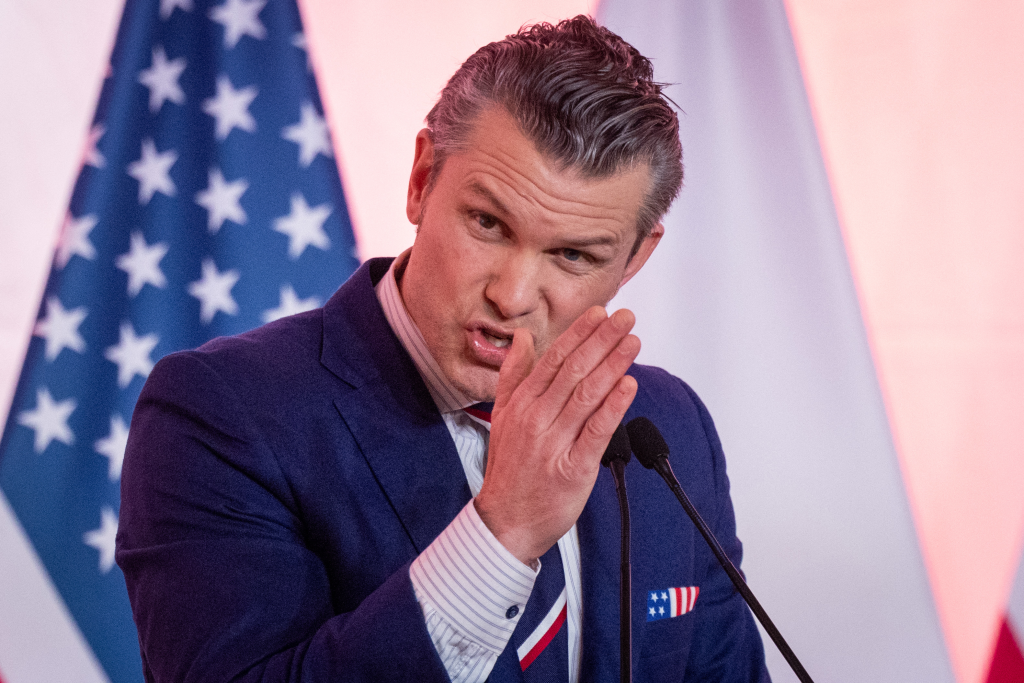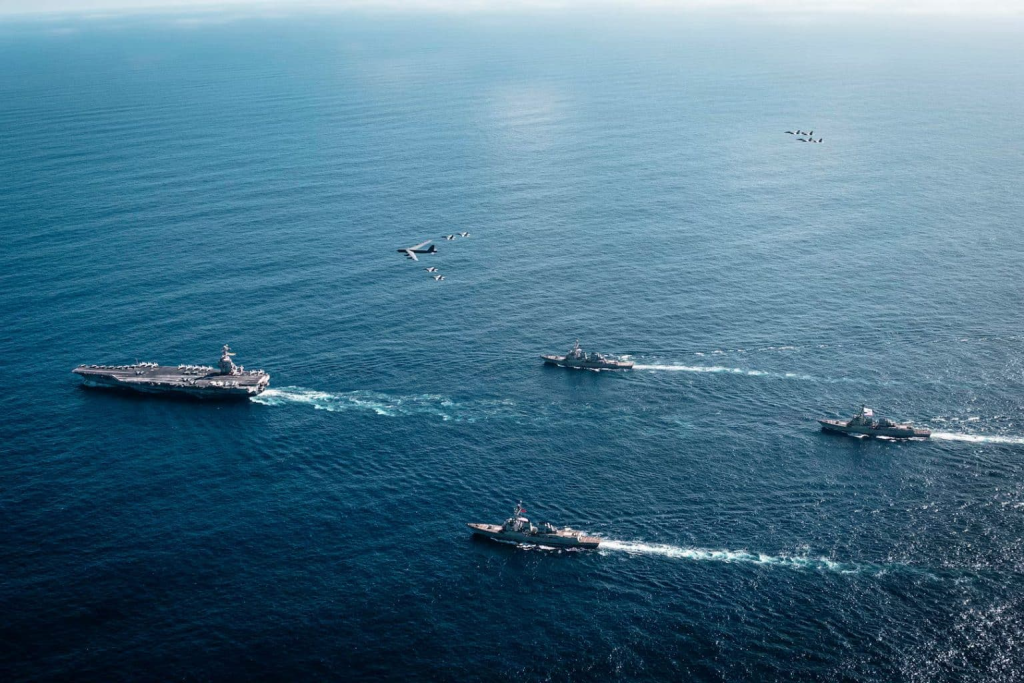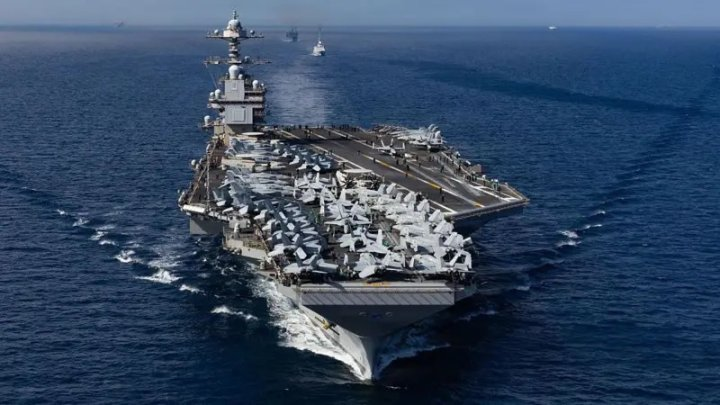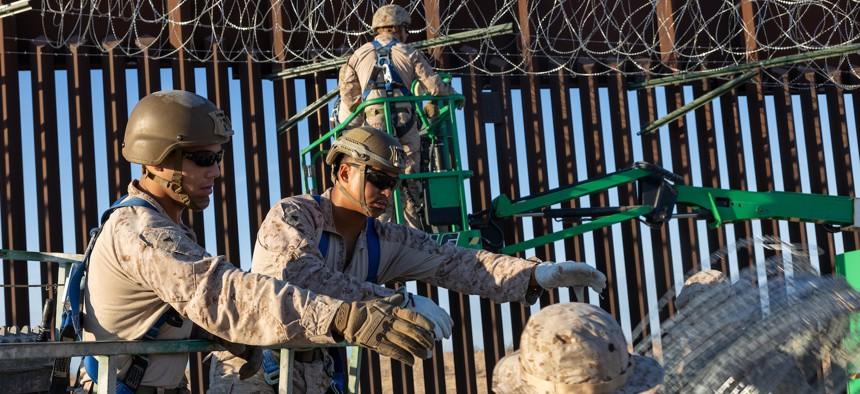
The Trump administration has announced an official military operation against Latin America. It’s based on the same drug war rhetoric used for his domestic war on immigrants, showing why resistance to militarization of U.S. cities should also be anti-imperialist.

On November 14, U.S. Defense Secretary Pete Hegseth announced the start of “Operation Southern Spear,” which will include a massive escalation of military forces in Latin America. According to Hegseth, the operation is designed to target so-called “narco-terrorists.” This comes at a time when the United States has already deployed Marines, naval assets, and even the Navy’s largest aircraft carrier, the USS Gerald R. Ford, to the Southern Caribbean.
The primary target of this aggression is Venezuela. Trump has not explicitly stated that his end goal is to oust Venezuelan president Nicolas Maduro, but such a scenario cannot be ruled out. Even if the Trump administration does not go as far as full-scale regime change, any number of attacks on Venezuelan sovereignty, including military strikes on Venezuelan soil, are on the table. This is typical gun boat diplomacy, designed to extract as many concessions out of the Venezuelan government as possible through threat of force.
The United States has for months been attacking boats around Venezuela, claiming with no evidence that these vessels were being used for drug trafficking. The United States military has already killed about 80 people in these attacks.

Writing in La Izquierda Diario, Milton D’Leon explains:
Far from being a simple “anti-narcotics mission,” as the Pentagon disguises it, this unprecedented military deployment in the Caribbean is a threat of open war and a key piece in the imperialist aggression strategy. The official justification—the fight against “narco-terrorism” and the flow of drugs like fentanyl—is a hypocritical veil that has been clearly exposed. It is a cynical pretext to conceal the true goal: to impose its objectives in Venezuela and recolonize Latin America.
It is the Monroe Doctrine amplified, a reaffirmation that the U.S. considers Latin America and the Caribbean its backyard, where it can act with impunity. Secretary of War Pete Hegseth himself, in announcing Operation Southern Spear, was explicit in his neocolonial vision: “The Western Hemisphere is America’s neighborhood, and we will protect it.” For this reason, a large-scale military deployment has been launched in the Caribbean, accompanied by bellicose rhetoric aimed directly at Venezuela and, by extension, the entire region.
In fact, the U.S. military build-up in Latin America and the Caribbean is expanding faster than some may realize. U.S. soldiers and Marines have begun training in the jungles of Panama for the first time in decades, and the United States plans to revive a deactivated base in the country, along with reopening deactivated bases in Puerto Rico and Ecuador.
D’Leon adds:
Operation Southern Spear thus represents the open militarization of US foreign policy. It is not merely a policy of deterrence; this military deployment is the core of a strategy of intimidation that could open the door to a war of aggression with catastrophic consequences for the entire region. Latin America, which in recent years has seen growing political tensions, social polarization, and renewed mass movements, could now enter a phase of greater instability as a result of this military pressure.
This is all in line with Trump’s national security strategy, which is not yet public, but which many news outlets have seen in draft form and are expecting to be made public soon. The draft national security document reportedly names the Western Hemisphere as the top priority for U.S. national security, shifting the focus of military operations away from regions like Europe, the Middle East, and even the Asia-Pacific. Instead, the military will prioritize training and operations in Latin America, the Arctic, and even deployments of the military within the United States under the umbrella of fighting “narco-terrorism.”

It is unclear however, how far Trump will be able to go with his plans for domestic militarization. His threats to deploy the National Guard to U.S. cities have been fiercely contested through community resistance in Los Angeles and Chicago. There is also some opposition from the institutions of the U.S. regime since the military has historically refrained from involving itself in domestic politics. But, as historian Greg Grandin recently noted, there has long been bipartisan support for building up militarization in Latin America.
The history of U.S. aggression toward Latin America shows that such interventions bring nothing but misery for the working people and oppressed of the region, all so U.S. companies can pillage natural resources and exploit local labor. This alone is reason enough that workers, students, socialists, internationalists, and all who oppose the Far Right and militarism in the United States should denounce Trump’s military escalations. But in the heart of the empire, we have even greater reason to be in solidarity with the countries facing the worst threats from the United States. It is the same war on drugs being used to justify attacks on Venezuela and military expansion throughout Latin America that is also being used to justify militarization of U.S. cities. This shows clearly how our struggles are connected.
As Trump escalates his militarization of the Western Hemisphere, those facing militarization in the United States must see the importance of denouncing and mobilizing against the militarization in the Caribbean and Latin America. Uniting our struggles across the region is not just a moral necessity, but a strategic one to more effectively confront all of Trump’s threats.
Leave a Reply